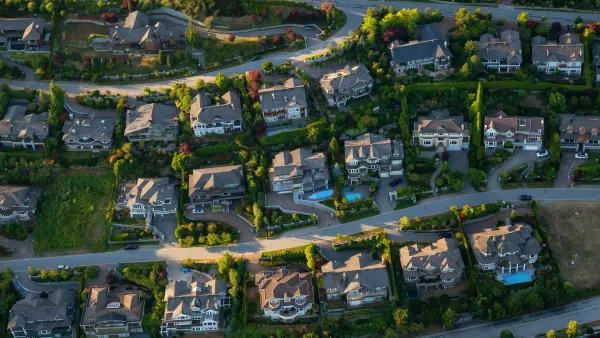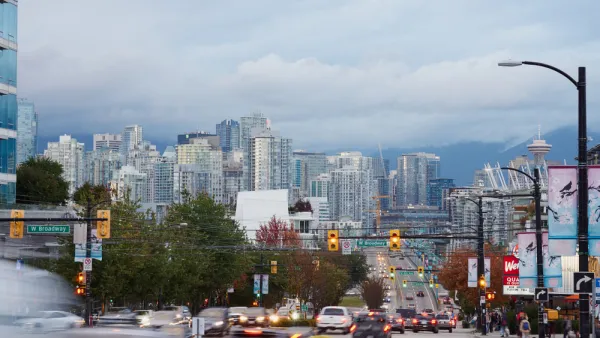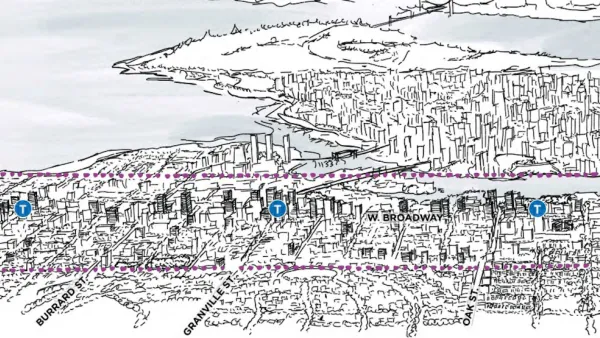The Tyee presents a conversation between two Vancouver urban thinkers about the city's downtown and how some efforts to improve the city's core have worked while others have fallen short.
This is the second of a three-part conversation between urban planner Lance Berelowitz and author Matt Hern, who look at Vancouver's bike lanes, density and car culture.
Matt Hern: "Really the key to urban transport issues -- especially in this city -- is density. We have to be getting people closer together. You said it perfectly once: "the whole city needs to be squeezed." Vancouver needs to be vastly more urban, not less. We need housing density (and I'm not talking faceless glass towers), commercial density, cultural density. This city needs to stop emulating a small town and embrace the urban. The result will be a much funkier city to be sure, but a much more ecological one as well. That said, density has to be done thoughtfully and politically. Just throwing up some condo towers in the Downtown Eastside is an ugly route to take, but that doesn't undermine the exigency of density."
Lance Berelowitz: "There is no doubt in my mind (and many others, see David Owen's really spot-on recent book The Green Metropolis, for example) that increased density is the key metric for urban sustainability and reducing our carbon footprint. Propinquity -- that is, pushing people and the things they need to live, closer together – beats currently trendy "green design" hands down when it comes to real, measurable environmental impacts. But even more than that, it is higher urban densities, and the frisson that this creates between uses, people and events, that is the single biggest contribution towards a more vital, dynamic, creative urban life. Look at all the great cities of the world: Paris, New York, London, Hong Kong, Istanbul, you name it. They are flat out more fun and exciting and full of unpredictable possibilities. And a whole lot denser than Vancouver.
It is this lack of unpredictability that perhaps most drives me to distraction about Vancouver. Too many rules, too much proscription, rather than treating people like real adults and trusting ourselves to try different things, even make mistakes. We agree on this. The best cities are layers of divergent trajectories that feed off each other."
FULL STORY: Opinion A Tyee Series A Year Later, Why Go Downtown?

Analysis: Cybertruck Fatality Rate Far Exceeds That of Ford Pinto
The Tesla Cybertruck was recalled seven times last year.

National Parks Layoffs Will Cause Communities to Lose Billions
Thousands of essential park workers were laid off this week, just before the busy spring break season.

Retro-silient?: America’s First “Eco-burb,” The Woodlands Turns 50
A master-planned community north of Houston offers lessons on green infrastructure and resilient design, but falls short of its founder’s lofty affordability and walkability goals.

Test News Post 1
This is a summary

Analysis: Cybertruck Fatality Rate Far Exceeds That of Ford Pinto
The Tesla Cybertruck was recalled seven times last year.

Test News Headline 46
Test for the image on the front page.
Urban Design for Planners 1: Software Tools
This six-course series explores essential urban design concepts using open source software and equips planners with the tools they need to participate fully in the urban design process.
Planning for Universal Design
Learn the tools for implementing Universal Design in planning regulations.
EMC Planning Group, Inc.
Planetizen
Planetizen
Mpact (formerly Rail~Volution)
Great Falls Development Authority, Inc.
HUDs Office of Policy Development and Research
NYU Wagner Graduate School of Public Service




























